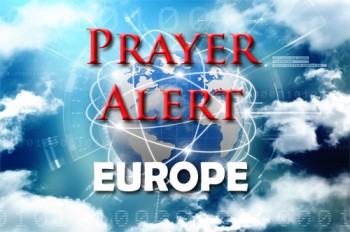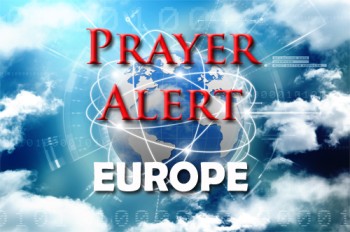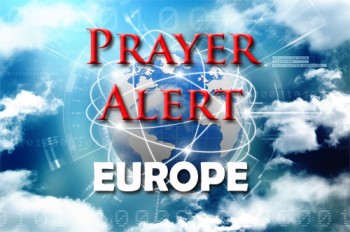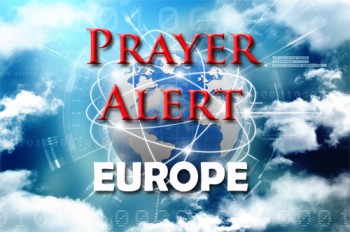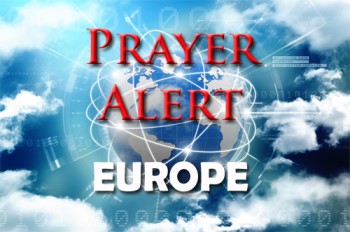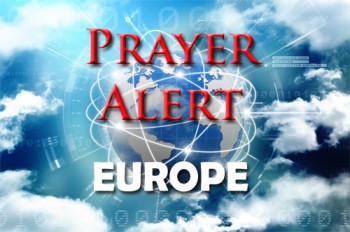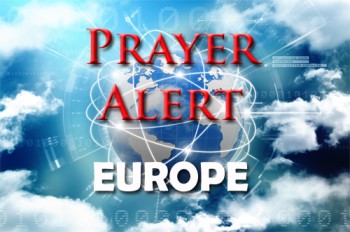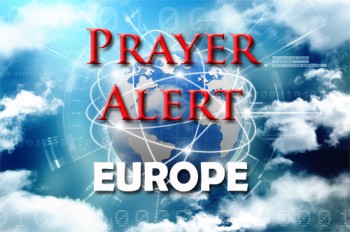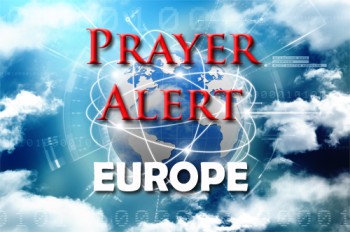Displaying items by tag: Europe
Italy: controversial outsourcing to Albania delayed
Government-aligned Italian MEPs are defending a plan to detain migrant arrivals in Albania, despite NGOs calling it ‘cruel’. Two Italian-funded migrant reception centres in Albania, part of a five-year agreement, face delays and are now unlikely to open before the end of the year. Under this deal, Albania will host up to 36,000 asylum seekers a year while Italian authorities handle their cases. The upfront costs are arguably minor compared to managing migration in Italy, but critics, including Amnesty International, argue that the plan violates human rights by detaining migrants for long periods and externalising asylum procedures. The externalisation model, also seen in the now-discarded UK government’s Rwanda plan, is seen as effective by some EU states but raises concerns about human rights and costs.
Ukraine: massive drone attack repelled
On 31 July Ukraine repelled one of Russia's most massive attacks since the war began, shooting down 89 Iranian-designed explosive drones and a missile, primarily targeting Kyiv. Despite debris damage to buildings, there were no casualties. This attack comes 29 months into Russia's invasion, with daily bombardments straining Ukraine's air defences. Russia claims it only targets military and energy sites, but residential areas are frequently hit. Volodymyr Zelensky stressed the need for sufficient air defence supplies to protect against Russian strikes and called for faster deliveries of systems like the US-made Patriots. Meanwhile, Ukraine struck a weapons depot in Russia's Kursk region, causing a fire. Russia's slow advance continues, with small gains reported in July, capturing eight villages in north-east, eastern, and southern Ukraine.
Ukraine: Sea of Azov Emptied of Russian Warships, Says Ukrainian Navy
Recent Ukrainian attacks in the Black Sea have compelled the Russian navy to rebase its ships, according to the Ukrainian navy. Dmytro Pletenchuk, a Ukrainian navy spokesman, confirmed that no Russian naval vessels remain in the Sea of Azov. Russian ballistic missile strikes on Kharkiv on Wednesday damaged the office of a Swiss mine-clearing NGO, injuring six people. Kharkiv mayor Ihor Terekhov reported that an industrial area was targeted. Kharkiv police head Volodymyr Tymoshko described a "double-tap" attack aimed at rescuers, who fortunately evacuated just before the second strike. Heavy Russian attacks have intensified around Pokrovsk in the Donetsk region, making conditions "tense" and difficult. Ukrainian forces continue to defend the area. The Institute for the Study of War (ISW) noted marginal Russian advances near Kharkiv and confirmed progress in Donetsk oblast. The ISW highlighted Russia's significant challenges in maintaining troop numbers and replacing heavy losses of equipment. Ukrainian authorities noted that Russia's current production is insufficient to cover these losses, with a British assessment indicating that Russia can only sustain operations until 2026-2027 by refurbishing Soviet-era stocks.
France1Million - a gift of a million worldwide prayers - for France
As the games commence, a number of Christian ministries, including World Prayer Center are collaborating to invite a gift of one million prayers for France, the safety and success of the games, and to cover many evangelistic outreaches taking place. We are also invited to pray for 500+ Church initiated events and projects taking place across France this summer under the umbrella of Ensemble 2024. They range from Bible giveaways, street evangelism, sports, arts and music festivals to 24/7 prayer. We are invited to say a prayer and click to add our gift on the website. Alternatively, there is an online pledge form for ongoing prayers from families or larger groups. An online prayer guide is available in 33 languages.
Balkans / Greece / Ukraine: heatwave causes huge problems
The Balkans, along with much of Europe, are enduring a prolonged heatwave, which has led to the unprecedented drying up of Serbia's Rusanda salt lake. An expert has warned that such heatwaves could become more frequent due to climate change. Temperatures in the Balkans have soared to 39°C (102°F), and the Adriatic Sea reached a record-high temperature of 29.5°C in Croatian coastal resorts. North Macedonia and Albania have deployed resources to combat forest fires, with North Macedonia declaring a state of emergency. The World Bank has highlighted the need for significant investment to mitigate the impact of climate change. Other European countries, including Italy, Greece, and France, are also experiencing extreme heat. In Ukraine, rain is forecast on 18 July, to break the pattern of several weeks of abnormally high temperatures; the country’s grain harvest is likely to be significantly reduced.
Germany: coalition finally passes 2025 budget
The German cabinet has at last approved its 2025 budget after months of wrangling, despite a €17 billion shortfall between projected spending and revenue. Finance minister Christian Lindner stated that innovative measures and stronger growth from a new economic package should generate an additional €6 billion next year. The budget includes record investments of €78 billion, net borrowing of €43.8 billion, and a total size of €481 billion. The country aims to boost its economy by over 0.5% in 2025. Lindner defended the budget's legality and fiscal prudence despite analysts’ concerns. Military aid to Ukraine will be reduced next year, as Ukraine is expected to secure $50 billion in loans from the G7. Germany was the worst performing major economy last year, with gross domestic product contracting by 0.3%. It pulled out of recession early this year, but growth has been slower than expected. Reaching agreement on the budget has been a major test for a coalition often accused of being hobbled by internal disagreements.
A gift of a million prayers for France
Love France is an initiative by International Prayer Connect and its partners, including the World Prayer Centre in Birmingham, aiming to bless, celebrate, and connect the worldwide Christian church with the Church across France as it runs various Christian events, outreaches and activities during the games this Summer. The project’s vision includes mobilising global prayer support for France, celebrating positive developments in the church community, and fostering connections through cultural, artistic, and sporting events. Key activities feature the 'France 1 Million' campaign that invites a gift of a million prayers from the worldwide Church for France this summer. A prayer guide and other resources are being published with daily prayer pointers: see An online prayer and discussion platform app will run for the duration of the main and para-games. See Churches are encouraged to get involved with the Eric Liddell 100 Celebrations, honouring the legacy of the famous athlete and missionary.
Ukraine: children’s hospital severely damaged by Russian missile
A Russian cruise missile has struck Okhmatdyt, Ukraine's largest children's hospital, in central Kyiv. The attack caused significant damage, including a collapsed roof that killed two hospital workers and injured 16 people, including seven children. Thousands of children, including those with cancer, undergo treatment at the hospital every year. The strike was one of forty launched against several Ukrainian cities, which resulted in at least 36 deaths and 125 injuries. Moscow, which habitually denies targeting civilian infrastructure, claimed the hospital was hit by a Ukrainian missile. The latest UN figures show over 30,000 civilian casualties since February 2022: see
France: leftist alliance rejects Macron’s calls for coalition after inconclusive election
Emmanuel Macron has urged France's mainstream political forces to form a coalition after the elections resulted in a hung parliament. The New Popular Front, which emerged as the largest bloc with around 190 seats, have demanded that Macron accept their pick for prime minister and allow them to form a government. They insist that respecting the election results is essential for democracy. Any new government - of the left, centre, or a broader coalition - could quickly fall victim to a no-confidence vote from the opposition if it has not secured sufficient support. One commentator has said that it will have to seek to pass laws on a case by case basis, with ad hoc agreements. For more details about how Marine le Pen’s dreams have unravelled - her party unexpectedly came third in the elections - see
France: manoeuvres ahead of second round of elections
Opponents of Marine le Pen’s far-right party National Rally (RN) have intensified efforts to block it from power, with over 200 candidates withdrawing from run-off elections to avoid splitting the anti-RN vote. RN led the first-round vote; the radical left-wing LFI was second, and Macron's centrist group third. Polls give RN between 250 and 300 seats: they need 289 for an outright majority. Macron has said that the top priority is blocking the RN, even if that meant endorsing an LFI candidate, but it was uncertain whether voters would follow that route. Le Pen stated RN would not form a government without a workable majority, hinting at alliances with other parties if needed. The RN would cut funding to the EU, and its anti-migrant policies have been criticised by human rights groups. There are fears that a hung parliament would lead to policy paralysis for the remaining three years of Macron's presidency.
